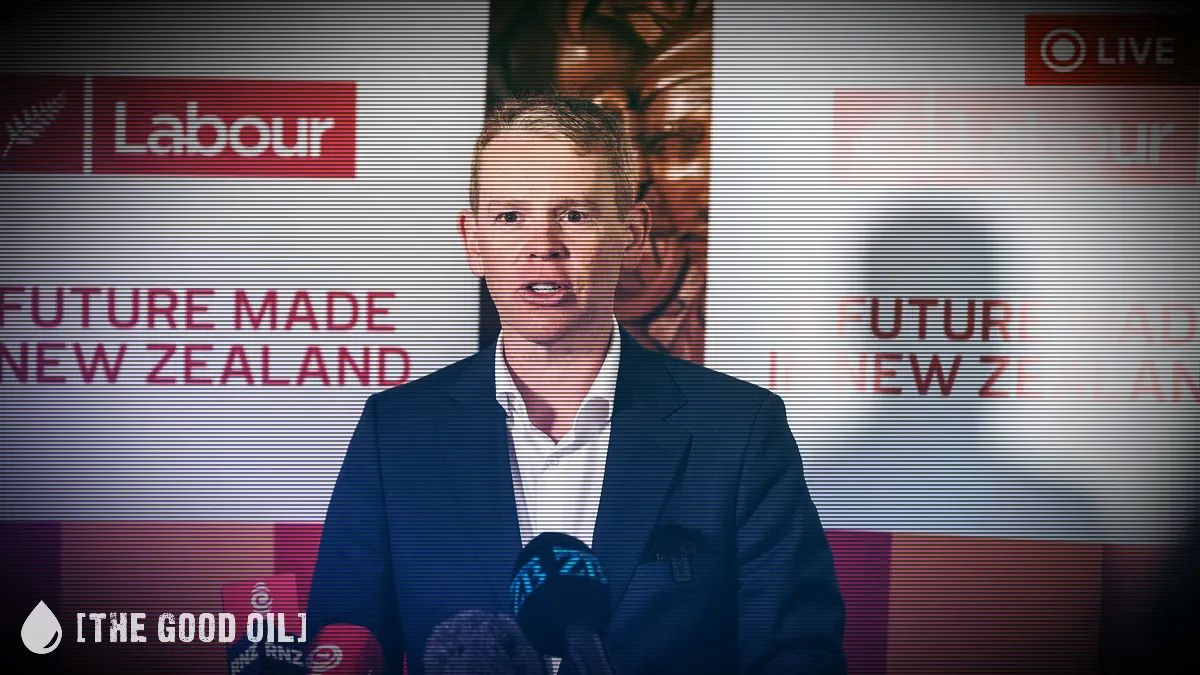Table of Contents
Michael Bassett
Political historian Michael Bassett CNZM is the author of 15 books, was a regular columnist for the Fairfax newspapers and a former Minister in the 1984-1990 governments
In case you are in any doubt, the New Zealand Herald, with TV1 in hot pursuit, has taken over the role of being the Labour-inspired Opposition to the new government. Chippy and Toni can take a holiday until the low-level editorial team at the Herald come to their senses, or the paper collapses.
The Herald’s policy became clear last week when it failed to carry in its print version an excoriating report by Auditor-General, John Ryan, on the defeated Labour government’s infrastructure blowouts. Instead, well buried on the Herald’s website, was a masterful summary of the 77-page report, showing that against advice from officials, between 2017 and 2023, Labour had rushed out $15 billion’s worth of infrastructure programmes leading to “chaotic, costly blowouts just months after they were first announced”.
Because the projects weren’t ready when first announced, ministers then had to tip an extra $1.9 billion over them just to keep them going. The Auditor-General noted that Labour’s ministers were so poor at bookkeeping that to this day it is “difficult to determine from publicly available information all the initiatives that received funding”. The government’s schemes went over budget many times. There followed a lengthy, dismal account of warnings to ministers that went unheeded by Labour. Ryan added: “It concerns me that significant spending of public money continued to occur without appropriate processes for ensuring value for money and transparent decision-making.”
In the days of honest journalism, such a report would have been front-page news. “All the News that is fit to Print” used to be a slogan at the Herald’s masthead. Not any more. Instead, the paper implied the new ministry was derelict in its duty by not shelling out an unexpected $1.47 billion to KiwiRail for inter-island ferries. Reasonable people realise that Nicola Willis was correct to reject this request, the more so because it became obvious in subsequent days that there were cheaper options that KiwiRail appeared to have tossed aside. The praiseworthy contrast between the Auditor-General’s report on the previous government’s slack stewardship, and the new ministry’s caution, hadn’t occurred to the Herald.
Despite Herald journalists having been shown up last week to be one-eyed, the paper this week has continued in its role as the self-appointed Opposition. Tuesday’s front page is a full-blown attack on the new Prime Minister because he took Maori lessons paid for by the taxpayer when Leader of the Opposition. It now transpires that several other National MPs also had state-paid Te Reo lessons. They were available to Labour MPs in my day, and it is highly likely that there are several current Labour MPs who have taken freebies too. The only valid criticism of the PM is that he appears carelessly to have said at one stage that he thinks everyone should pay for them themselves. The Herald then ties his criticism of freebies to an earlier statement of his that is critical of public servants receiving bonus payments in perpetuity for no other reason that they had taken Te Reo lessons. This is stretching things. Certainly not comparing apples with apples. And then, to cap it all, Luxon cops a swipe for referring to the Ministry of Homes and Communities by the name Kainga Ora that was bestowed on it by the former Labour ministry. Quite correctly, the new government has directed that government departments should be called by their English names that everyone understands. But in this case, Labour had given the department a name that wasn’t a correct translation of its former title. What small games the Herald is playing!
As if this wasn’t enough coalition-bashing, Tuesday’s paper then carried a two-page “analysis” by Derek Cheng, about perceived shortcomings in the government’s promise to get tough on gangs. After nearly 40 column inches of barely relevant stuff on overseas efforts to control gangs, most of them unsuccessful, Cheng finally got around to talking to Paul Goldsmith, the new Minister of Justice. Goldsmith outlined the new government’s thinking. But he wasn’t let to speak for long: we were soon back to turgid expositions from Cheng and others, most of the two pages ending up of almost no use to man or beast. The paper then followed with ritual snide remarks about Luxon and Nicola Willis by the Herald’s in-house walking and cycling fanatic, Simon Wilson.
Quite why the new government has been given no leeway as it settles into office and comes up to speed hasn’t been explained by our mainstream media. TV ONE and Radio New Zealand are barely any better than the Herald with their comments, and are almost as quick to assume Chippy’s Opposition role.
Far be it from me to be a defender of the new Coalition ministry. While they get a bare pass mark from me for what they have done so far, they have a long way to go to fulfil the election hopes of their supporters. But if ministers are to receive a constant battering from so-called news reporters then we are in for a dismal three years of “gotcha” journalism. The only bright spot will be that the struggling Herald might well collapse.








